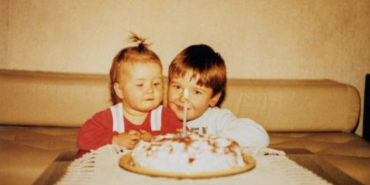Clean Hands, Pure Hearts

Does a morality gap exist today between what people say they believe and how they behave? Most people would say yes. We have divorced belief from behavior. To our detriment, morality has become a take-it-or-leave-it kind of deal. As if we were making cafeteria selections, we have become adept at picking and choosing brands of morality.
A portion of this morality dilemma is the privatization of living. For instance, people say, "This is my life, not yours. I'll make my own decisions," and "It is not your business what I do." Richard Foster observes what he calls the "egocentric, hyphenated self-sins of our day." Among them he lists "self-indulgence, self-will, and self-gratification." Many of our societal problems have progressed down this trail.
Pornography can be listed among the types of self-indulgent sin. Drug and alcohol abuse can be found there, too. Sexual abuse of children falls under the "self-will" of an adult being carried out on an undeserving, unaware child. For the conscientious Christian, however, withdrawing into false pretenses of personal preferences isn't a real option. The child of God belongs to God. Jesus' disciples believed the world and everything in it belongs to God (Psalm 24:1), and that belief changes everything.
When we believe we belong to God, we have an accountability to live a particular way. "Who may ascend the hill of the LORD?" the psalmist asks. He then answers, "He who has clean hands and a pure heart" (Psalm 24:3-4). Having clean hands and a pure heart are the desires and expectations God has for us.
This is a very clear call to how we are to live. The sliding scale of morality that is a part of our society does not fit in with these clear directives.
The Spirit-devoted believer will gain help from Jesus' words: "Your eye is the lamp of your body. If your eye is healthy, your whole body is full of light, but if it is not healthy, your body is full of darkness. Therefore consider whether the light in you is not darkness" (Luke 11:34-35, NRSV). If it is true that what is inside will always come out, perhaps we should be concerned with what is being put "inside."
The eye is an organ designed to catch light for the body to use. When the eye is sound and right and light is shining, the eye enables us to fully use that light: we can see where we are, how to walk, and how to do our work. But when something is wrong with our eyes, we can't use the light: even if the world is illuminated by the brightest light, if an eye is damaged, it won't help. The whole body is then wrapped in darkness.
This describes where society is today. Most people laboring under a selective morality will make changes only when their situations get bad enough and they face disastrous results. Jesus calls us to work earlier. "Consider whether the light in you is not darkness." Jesus calls us to commit to a disassociation with what is wrong in God's sight. We need to avoid anything that lowers our inhibitions. For instance, how does the use of alcohol appear in the light of such a test?
We have divorced belief from behavior. To our detriment, morality has become a take-it-or-leave-it kind of deal.
Set a watch at the door of your eyes. Lusting often begins with looking. Guard your imagination. Fill your imagination with "Whatsoever things are pure . . ." (Philippians 4:7-9). Do not run into temptation. Some associations and friendships are corrupting. Keep your mind occupied with Christ and the pattern he has given you.
Having "clean hands and pure hearts" will require us to make choices about media and other influences, choices about lifestyle and sexuality, and choices about relationships and exploiting others. For the sake of God's glory in us, consider what lights your way.
Michael Benson is chaplain at Olivet Nazarene University in Bourbonnais, Illinois.
Holiness Today, November/December 2004
Please note: This article was originally published in 2004. All facts, figures, and titles were accurate to the best of our knowledge at that time but may have since changed.




